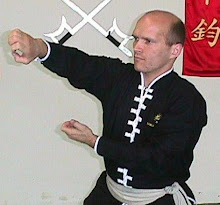More Clues on How Exercise Can Protect Against Diseases of Aging
Research suggests another avenue by which exercise guards against heart disease and cancer: telomeres
Exercise can't stop the years from ticking by, but it certainly appears to protect against some of the diseases of aging. The latest evidence: a new study showing that the white blood cells of endurance athletes had longer telomeres, the tiny, protective units of DNA that cap the end of chromosomes like plastic shoestring tips and grow shorter as cells age. The study, published online by Circulation, may explain how exercise can protect against two big killers: heart disease and cancer. "Younger" white blood cells may be able to more efficiently clear out both abnormal cells that may progress to cancer and the plaques implicated in heart disease.
Moreover, specific cancers are uniquely affected by exercise. The reason the odds of colon cancer, for example, are reduced by exercise is probably that it decreases the amount of time food spends in the digestive system, lessening contact between the gut and carcinogens in food. It's thought that breast cancer is encouraged by both inflammation and estrogen exposure, says Christine Friedenreich, leader of population health research at the Alberta Cancer Board in Canada. Exercise cuts the amount of estrogen circulating in the system and may cause changes in the menstrual cycle that reduce exposure to the hormone over many months or years. (One note on cancer and exercise: It's not entirely clear how much of its positive effects are attributable to its melting away of body fat, so you're wise to focus on losing weight as well.)
Somehow, exercise also seems to preserve brain function as you age, too. There's evidence from animal studies that exercise may help generate new neurons, which may give your brainpower a boost, says Arthur Kramer, a neuroscientist at the University of Illinois at Urbana-Champaign. Vigorous activity also may contribute to the creation of new blood vessels in the brain that help forge connections between neurons. It appears, Kramer says, that exercise not only slows negative changes to the brain but also gives you some cognitive reserves, so that even if the plaques implicated in Alzheimer's disease do appear, they don't have the same impact that they would in a couch potato.

No comments:
Post a Comment